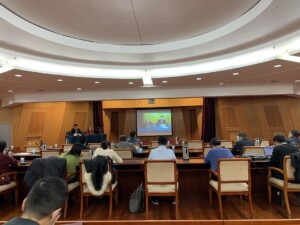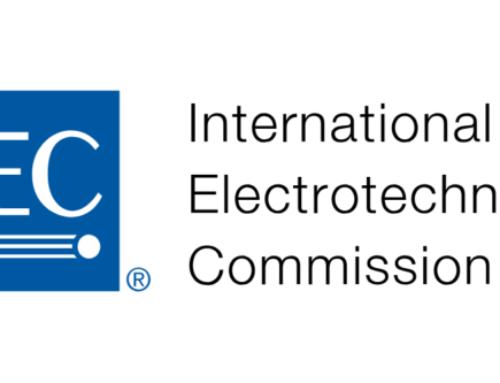 On 18 December 2020, Dr. Betty XU was invited to give a training to relevant personnel of the Standardisation Administration of China (SAC), on the topic of international cooperation between ISO/IEC and CEN/CENELEC. The training was held both online and offline with more than 150 participants.
On 18 December 2020, Dr. Betty XU was invited to give a training to relevant personnel of the Standardisation Administration of China (SAC), on the topic of international cooperation between ISO/IEC and CEN/CENELEC. The training was held both online and offline with more than 150 participants.
After a brief introduction of the SESEC project, Dr. Betty XU first explained in detail the European standardisation and technical regulation system, including the roles and responsibilities of different actors such as the European Commission, EFTA, CEN-CENELEC and ETSI; as well as the goals, essence and consistency of the European Standardisation System. A central part of the training was a detailed overview of the Vienna Agreement between ISO and CEN, and of the Frankfurt Agreement between IEC and CENELEC. Dr. Betty focused on the parallel development and review of standards, and emphasised the primacy of international standards. Specifically, Dr. Betty XU highlighted that the Frankfurt Agreement is in general similar to the Vienna Agreement, with the main differences being:
- All IEC standards-setting is subject to the IEC-CLC parallel procedure (except where permitted by the Technical Committee);
- All New Work Item proposals by CENELEC will be submitted to IEC (CENELEC will start New Work Item proposals only after the new work plan is approved);
- EC-CENELEC standards led by CENELEC do not follow parallel development and adoption procedure;
- Common modifications to international standards can be made at the European level.
After the training, participants were given time to raise questions. Most of the questions related to China’s participation in international standardisation development, highlighting the fact that, in practice, European countries exert major inference in some international standards, perhaps due to the Vienna Agreement and Frankfurt Agreement.
The training gave a full and detailed overview of the international cooperation mechanism between ISO/IEC and CEN/CENELEC; as such, it provided support to China to better coordinate with the international standardisation system.




